Open Self Service + Medusa integration - Orders, Assets, and more
We’re excited to share the initial release of our integration between Open Self Service and Medusa.
This integration allows developers to easily display commerce-related data such as Orders, Assets, and Services within customer-facing portals built with O2S.
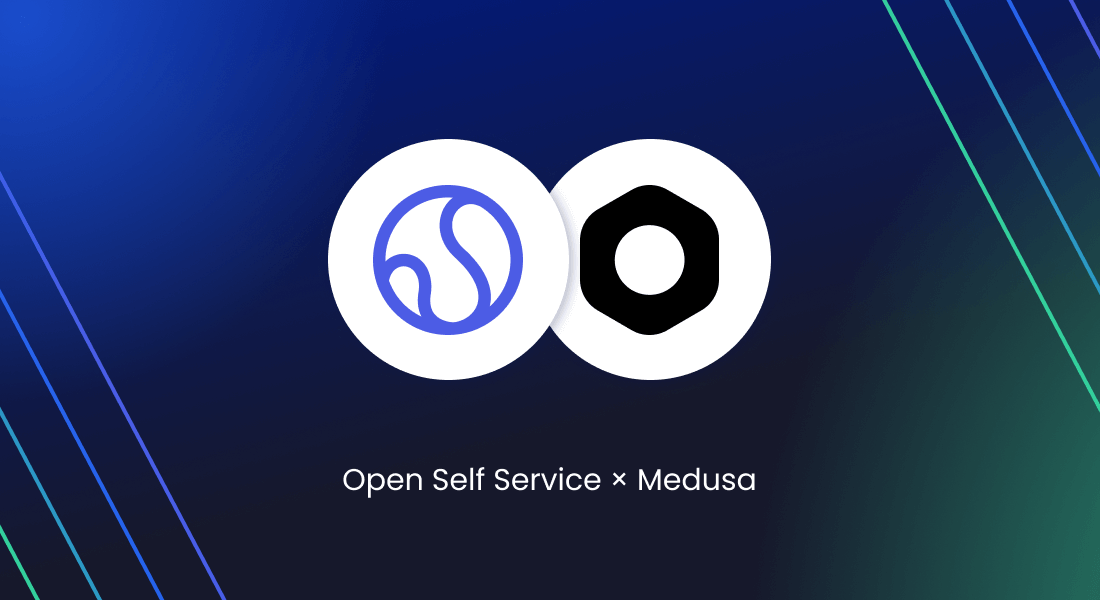
Why integrate Medusa with O2S?
Open Self Service is a full-stack frontend framework for customer portals - applications designed for efficient customer support, combining data from multiple sources and offering rich self-service capabilities. Medusa, on the other hand, is an excellent choice for headless commerce logic - fast, customizable, and open.
By combining both, you can:
- Extend Medusa with new capabilities for B2B and post-purchase scenarios,
- Use Medusa not only as a commerce engine but as part of broader, non-standard flows,
- Display customer orders and service data in a branded, decoupled UI,
- extend Open Self Service's frontend further so that it becomes a full-featured sales & customer support platform.
What’s included in the integration?
We created a dedicated Medusa plugin: see medusa-plugin-assets-services on GitHub
This plugin adds support for two new models:
Asset- represents purchased items with serial numbers or support-relevant metadataServiceInstance- describes purchased or assigned services for the customer
Additionally, it enables creation of product references between variants with types such as spare parts, replacements, accessories, and more.
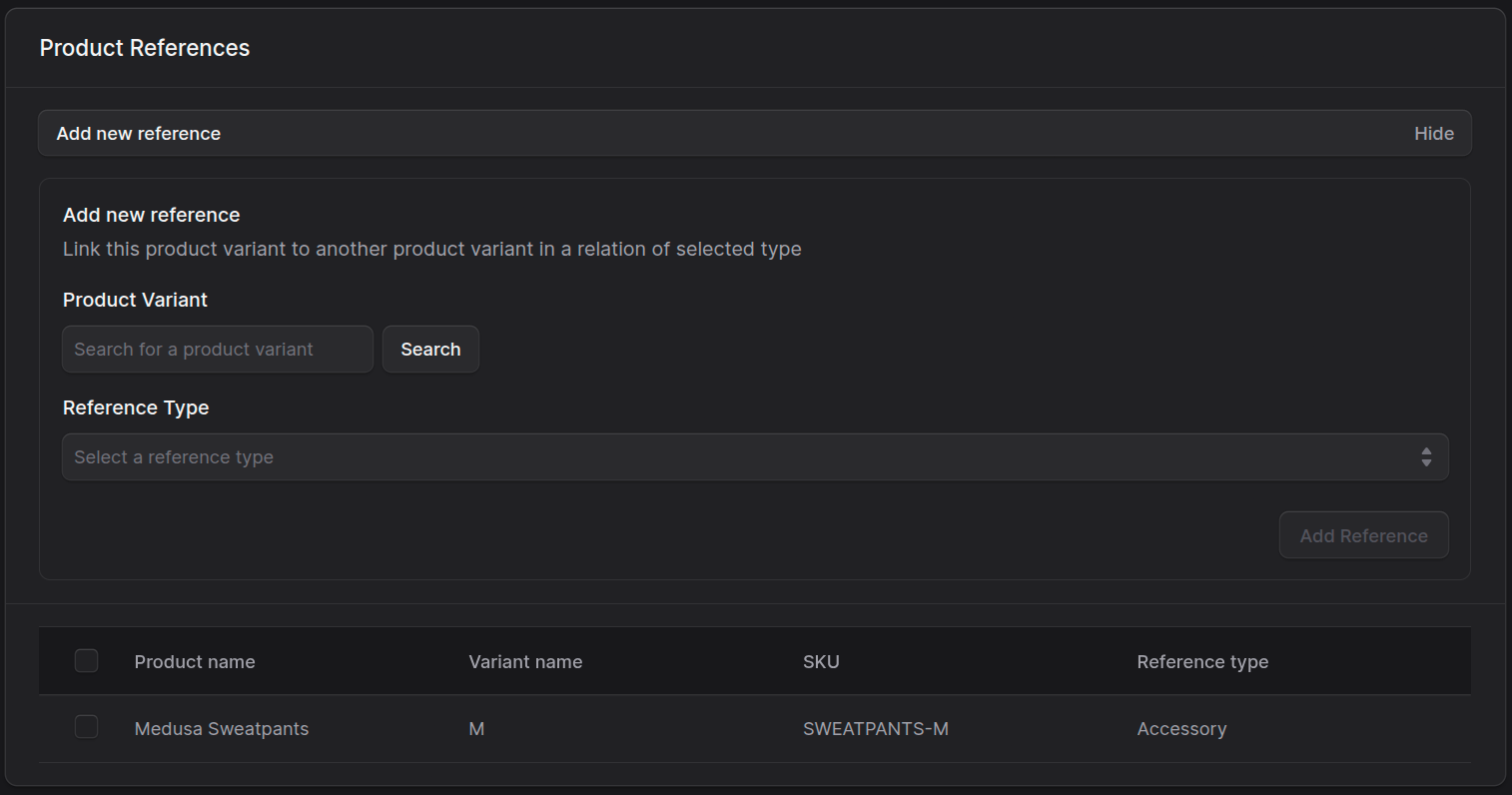
These are fully accessible via the Medusa API and can be queried from the frontend app using our API Harmonization Layer.
What does it look like in Medusa and Open Self Service?
Once integrated, O2S provides the following out-of-the-box screens:
-
Orders page with list, status info, and order details. Supports sorting, pagination, and orders summary metrics.
-
Services page presenting customer's services. Data pulled from Medusa API (ServiceInstance model).
-
(Optional) Assets page (currently not part of open-sourced O2S). Displays assigned/purchased devices / products.
In Medusa the plugin adds admin widgets to view and manage data, e.g.:
-
Service instances list
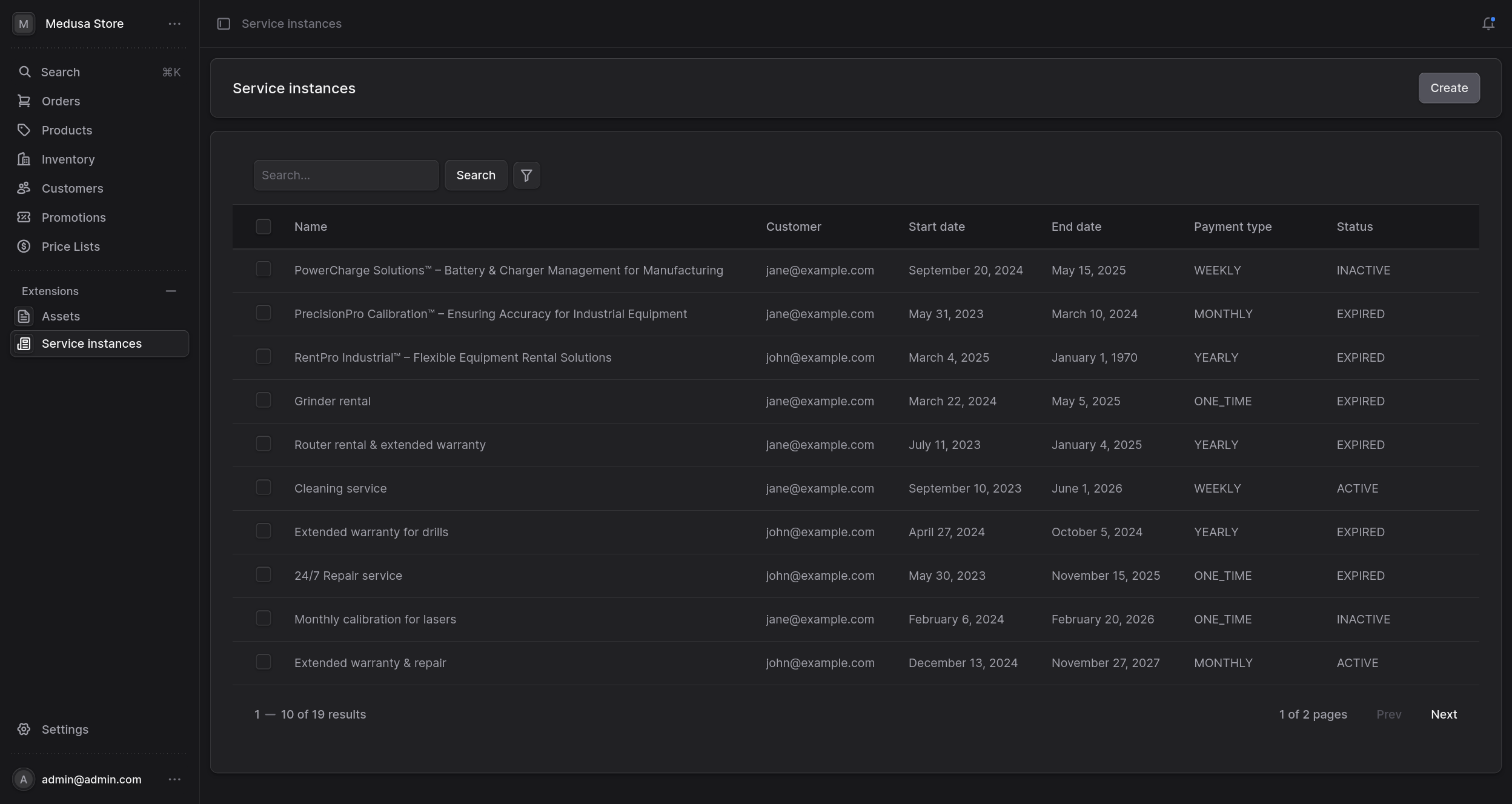
-
Asset details
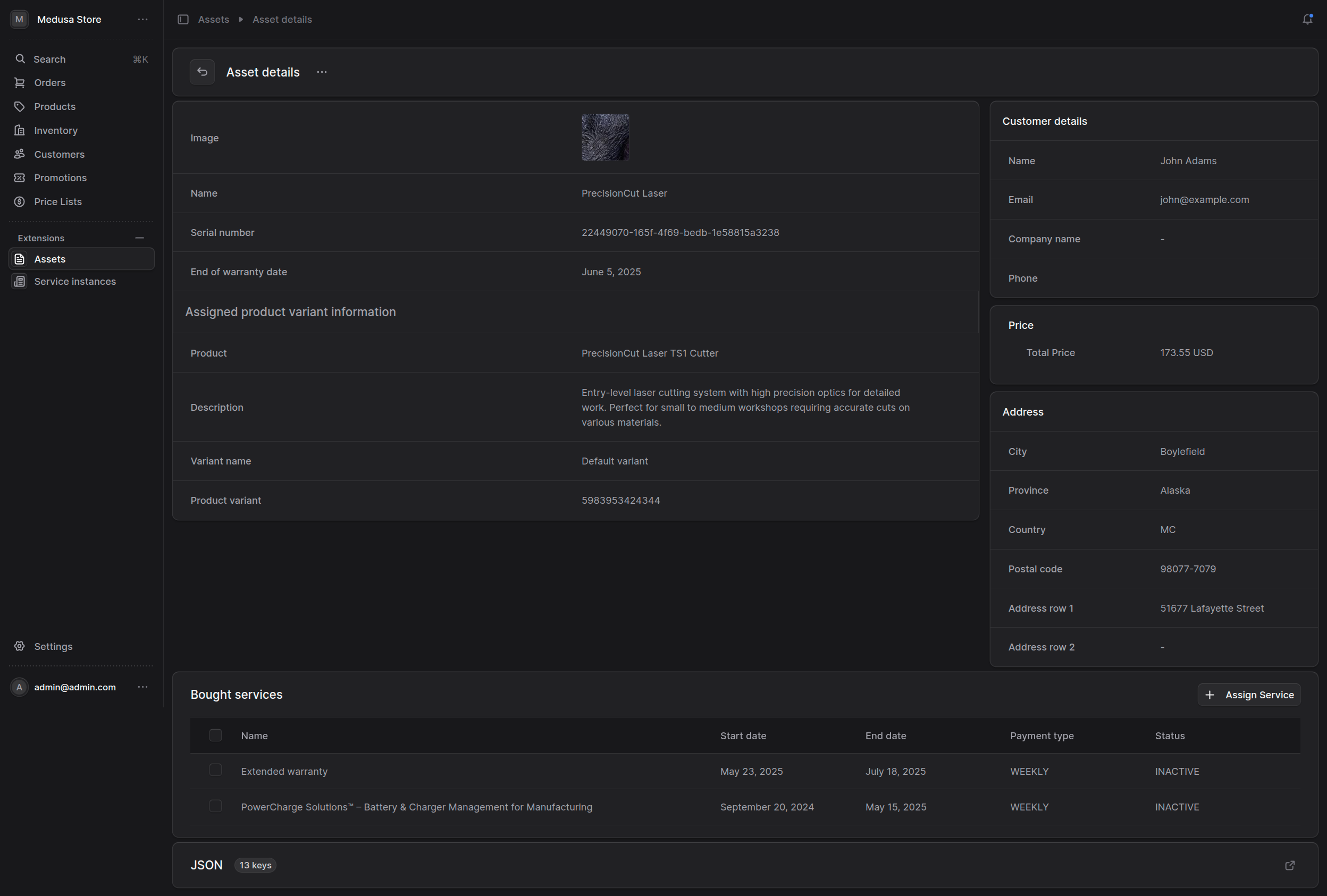
In our frontend app Medusa is the data source for the Orders, Services and Assets (not open-sourced) screens:
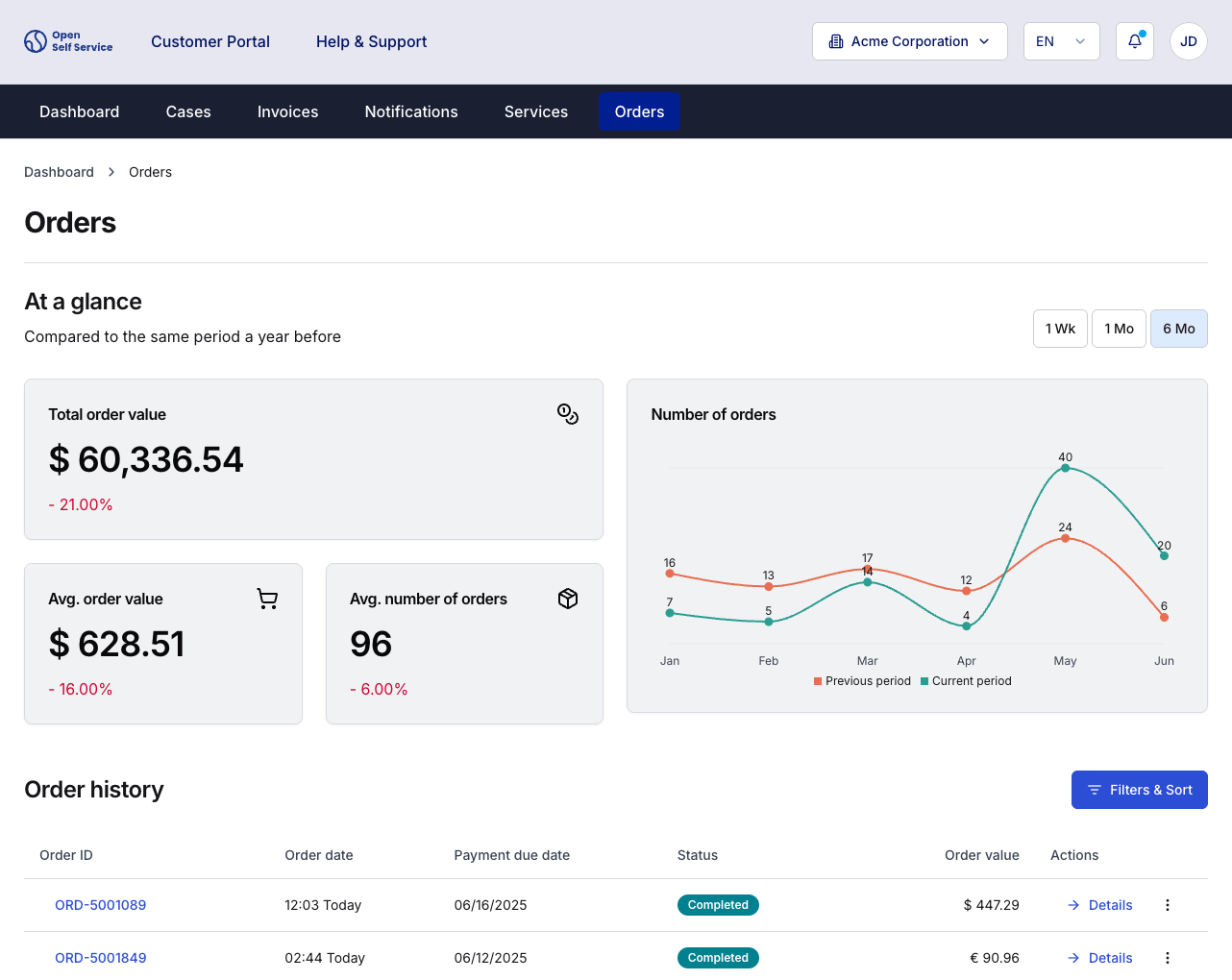
Technical details
The Medusa plugin was build using the standard approach outlined in Medusa's plugin creation documentation.
- Plugin is installed via npm and automatically adds
AssetandServiceInstanceentities to your Medusa instance. - These are exposed via REST API and can be used with any frontend (not only O2S).
- In O2S, you configure a Medusa integration module that maps the data to O2S’s normalized schema.
You can find both:
- the plugin code here
- and the O2S integration module here
What’s next?
We’re planning to extend this integration further:
- Add handling of Product endpoints (simple product catalogue)
- Potentially, somewhere in future cover even more endpoints and add more commerce features to the frontend app so that O2S could be used like a full sales and customr support solution.
If you're working with Medusa and looking to build something beyond a classic shop, we’d love your feedback.
Let us know what you'd like to see next. And if you find it useful -> give us a ⭐ on GitHub 🙌
Got questions? Join our Discord community and let’s talk.